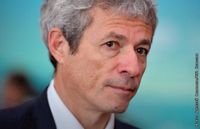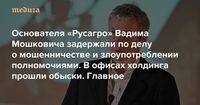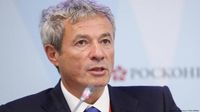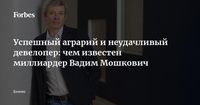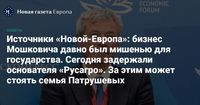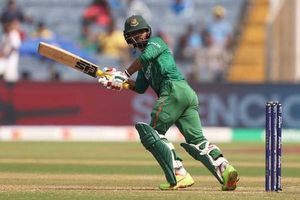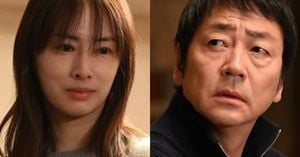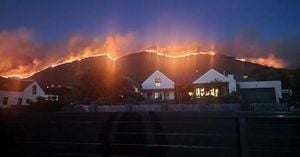On March 26, 2025, Vadim Moshkovich, the billionaire founder of the Rusagro agricultural holding and a former senator from the Belgorod region, was detained by Russian law enforcement agencies. This significant development was confirmed by multiple sources, including the state television channel RT and the RBC agency, with reports indicating that Moshkovich was taken into custody on March 25, 2025, amid a sweeping investigation into allegations of fraud and abuse of power.
The detainment of Moshkovich has sent shockwaves through the agricultural sector, particularly affecting Rusagro, one of Russia's largest producers of sunflower oil, pork, and sugar. Following the news, shares of Rusagro plummeted by as much as 20%, marking a dramatic decline in investor confidence. At one point, the stock traded as low as 180.1 rubles before slightly recovering to 182.76 rubles.
Searches were conducted in Rusagro's offices across several regions, including Moscow, Belgorod, Tambov, and Saratov. Law enforcement officials seized documents during these searches, which are part of a broader investigation into alleged embezzlement involving Moshkovich and other associates within the company. According to Interfax, Moshkovich has been charged with large-scale embezzlement under Russian criminal law, specifically under articles pertaining to fraud and abuse of authority.
Sources familiar with the investigation have indicated that Moshkovich's legal troubles may be linked to his business dealings with other firms, particularly the Solnechnye Produkty group and its owner, Vladislav Burov. Allegations suggest that Moshkovich may have been involved in fraudulent schemes related to land assets in the Belgorod region. The investigation is reportedly examining whether Moshkovich and his partners misappropriated funds amounting to approximately one billion rubles.
Interestingly, Moshkovich's detention marks a notable event in the context of Russian business, as it is the first instance of a current billionaire from the Forbes list being detained since the onset of the Russian-Ukrainian conflict. Moshkovich, who has been under personal sanctions from the European Union, the United Kingdom, and Switzerland since the start of Russia's full-scale invasion of Ukraine in 2022, had previously reduced his stake in Rusagro to 49% and stepped down from the company's board of directors.
In the wake of these events, the Rusagro press service has stated that the searches conducted by law enforcement are not related to the company’s ongoing operations, emphasizing that the management remains in place and the company is functioning normally. However, the broader implications of Moshkovich's detention raise questions about the stability of the agricultural sector in Russia and the potential for further investigations into other prominent business figures.
Vadim Moshkovich founded Rusagro in 2004, and under his leadership, it grew into a major player in the Russian agricultural market. The company's revenue for 2024 was reported at 340.1 billion rubles, a 23.2% increase from the previous year. Moshkovich's wealth was estimated at $2.7 billion in 2024, placing him 55th on Forbes' list of Russian billionaires.
In addition to his role at Rusagro, Moshkovich has been involved in various business ventures over the years, including real estate projects through his company Level Group. He has also founded the Letovo private school, which has gained recognition for its international baccalaureate programs. Despite his successes, Moshkovich has faced challenges, particularly in the wake of sanctions and scrutiny from the Russian government.
The investigation into Moshkovich's activities is part of a larger trend in Russia, where the state has been increasingly targeting prominent business figures, particularly in the agricultural sector. Some analysts suggest that the Patrushev family, known for their influence in the food and agricultural industries, may be positioning themselves to acquire significant assets from companies like Rusagro.
This situation serves as a stark reminder of the precarious nature of doing business in Russia, especially for those who have previously sought to relocate their operations back to the country amid international sanctions. Moshkovich's case highlights the complexities and risks faced by entrepreneurs in a rapidly changing political and economic landscape.
As the investigation unfolds, many will be watching closely to see how it impacts Rusagro and the broader agricultural market in Russia. The outcome could have significant implications not only for Moshkovich but also for the future of agricultural production and business operations in the country.
